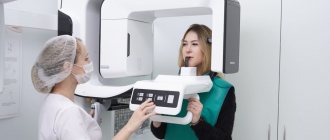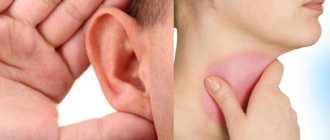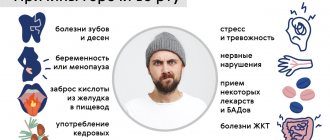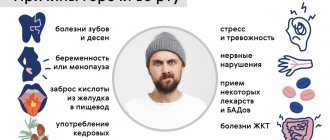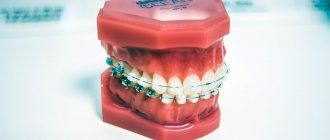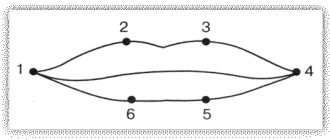Impairment or difficulty in swallowing (dysphagia) is a feeling of painful and unpleasant sensation behind the sternum, a “lump in the throat,” directly related to the process of swallowing and eating food, or provoked by stressful or traumatic situations.
Swallowing is a complex process and can be disrupted by a variety of factors. Sometimes these are age-related changes in the swallowing muscles that develop in older people. In older age, swallowing problems are relatively common. However, age-related dysphagia should not be accepted as a natural part of the aging process. There are certain treatments available.
Nervous throat
Every patient has the right to receive a full medical verdict if it is so important for him to calm down and stop beating himself up. But there are three signs by which a person is able to independently determine whether his swallowing process really has a connection with nerves, and not with organic diseases:
Upon waking up, the patient may not experience difficulty swallowing for some time. The brain needs at least 15 minutes to “remember” the current problems and get ready to repeat them.
Cancer and thyroid are, of course, no joke. But, oddly enough, they do not cause pharyngeal spasms during swallowing saliva. And when such problems begin, the diseases are already so obvious and accompanied by additional painful symptoms that it is impossible to doubt them.
If you get too carried away by something, you may not even notice how saliva has successfully passed along its route to the stomach several times. But as soon as the patient comes to his senses, he again cannot swallow.
Reasons for violation
Almost every person has had to deal with temporary difficulty swallowing, which occurs during severe excitement, fear or crying. But such a problem can arise for other reasons.
For example, a natural change in the function of the swallowing muscles occurs in old age. The problem may also arise from a complication following neck or head surgery. Problems with swallowing often occur due to excessive dryness in the mouth or the presence of ulcers in the mouth.
Other reasons for the development of pathology include:
- Neurological diseases.
- Obstruction of the esophagus and pharynx.
- Muscle dysfunction.
- Congenital diseases.
Main reasons
Pain behind the sternum when swallowing is associated with damage to the mucous membrane of the organ or its stretching. For each of the esophageal pathologies, additional symptoms can be identified.
Reflux esophagitis
The disease occurs when the gastroesophageal sphincter is insufficient. Under such conditions, gastric juice enters the esophagus, which is not adapted to an acidic environment. Erosion and ulcers form in it. The process is accompanied by pain, burning, and sour belching after eating. In young children, the disease manifests itself with regurgitation and vomiting.
Foreign body
In adults, solid food particles are found in the lumen of the organ - bones, cartilage, nut shells. In childhood, small objects can get there - pins, buttons, coins. Foreign bodies in the esophagus are manifested by increased salivation, a feeling of a lump in the throat, and difficulty swallowing.
Injuries
Damage to the organ wall occurs due to injuries (puncture, cut, blunt). They are open and closed. The cause may be spontaneous rupture, ingestion of sharp objects, or perforation of the wall due to an ulcer. The pain syndrome has characteristic features: it radiates to the back, upper abdomen, and intensifies during esophagoscopy.
Burns
Burns of the mucous membrane are associated with the ingestion of chemicals or too hot food, which destroy the mucous membrane. Subsequently, a scar forms on it, narrowing the lumen of the organ. Symptoms appear immediately after taking the substance: salivation, vomiting blood, decreased blood pressure.
Hernia
A diaphragmatic hernia can be suspected if discomfort during eating is localized on the left. With this pathology, part of the stomach, less often the intestines, rises into the chest cavity. Pain in the esophagus when swallowing occurs when coughing, physical activity, or while eating. Improvement occurs after vomiting.
Neoplasm
Pain when swallowing food occurs with malignant and benign tumors, which most often affect the middle and lower parts of the esophagus. It bothers you at night and is accompanied by a feeling of fullness and regurgitation. The larger the tumor, the more difficult it is for food to pass through. The disease also causes bad breath and vomiting of undigested food. While eating, patients feel discomfort. Symptoms of a malignant tumor of the esophagus include sudden weight loss, weakness, and refusal of meat products.
What happens when you have a swallowing disorder?
The patient loses the ability to swallow only solid food, and in more severe cases, liquid and saliva.
The stomach contents flow back into the esophagus and throat. There is a feeling of a lump in the throat due to the fact that the acidic environment of the stomach enters the throat and burns the mucous membrane.
During swallowing, a feeling of lack of air appears.
After eating food, there is a feeling for some time as if it is stuck in the throat.
There is a sore throat and shortness of breath.
Swallowing disorders: causes, “coma in the throat” syndrome
The swallowing process is repeated periodically, not only while awake, but also during sleep. Like breathing, this process often occurs involuntarily. The average frequency of swallowing is 5-6 times per minute, however, with concentration or strong emotional arousal, the frequency of swallowing decreases. The swallowing process is a clear sequence of muscle contractions. This sequence is provided by a region of the medulla oblongata called the swallowing center.
Swallowing difficulties can develop without a person noticing. Impaired oral feeding, weight loss, a significant increase in the time it takes to swallow food - all this can be a manifestation of a violation of swallowing function. Signs of difficulty swallowing may include:
- throwing back the head or moving the head from side to side, helping to move the food bolus;
- the need to wash down food with water;
Despite pronounced difficulties in swallowing, the tongue and the muscles that lift the velum palatine can function normally.
A swallowing disorder is medically called dysphagia.
What diseases cause difficulty swallowing:
Swallowing disorders can lead to serious consequences:
- exhaustion of the body, weight loss;
- cough during and after swallowing, constant choking;
- feeling of lack of air while swallowing;
- pain and shortness of breath;
- development of pneumonia;
Depending on the causes of swallowing disorders, there are:
- Mechanical (organic). A similar violation can occur when the size of a piece of food and the lumen of the esophagus do not match.
- Functional. This type of swallowing difficulty occurs when peristalsis and relaxation are impaired.
Both mechanical and non-mechanical problems can occur for a variety of reasons. Organic (or mechanical) swallowing disorder is associated with direct external or internal pressure on the esophagus. In such a situation, the patient says that it is difficult for him to swallow food. There may be several reasons for mechanical impact:
- Blockage of the esophagus by any foreign body or food;
- Narrowing of the lumen of the esophagus, which can occur due to:
- edema resulting from an inflammatory process (stomatitis, sore throat, etc.);
- damage or scars (burns from taking pills, scars from operations or after inflammation);
- malignant and benign formations;
- stenosis;
3. External pressure may be a consequence of swelling of the thyroid gland, compression by blood vessels, etc.
Functional swallowing disorders include disorders associated with impaired muscle function. Violations can also be divided into 3 groups:
- Disorders associated with tongue paralysis, brain stem damage, sensory disturbances, etc.
- Disorders associated with damage to the smooth muscles of the esophagus. Such violations lead to weakness of contractions and impaired relaxation.
- Disorders associated with diseases of the muscles of the pharynx and esophagus;
Other causes of difficulty swallowing include: Parkinson's disease, parkinsonism syndrome, inflammation of the esophageal mucosa and connective tissue diseases.
“Lump in the throat” syndrome The feeling of a lump in the throat (globus pharyngeus syndrome) is one of the most common complaints when visiting an otolaryngologist. During their lifetime, approximately 45% of people experience this sensation. This syndrome began to be studied as one of the manifestations of hysteria, but during the study it became clear that only a part of the cases were due to psychiatric reasons.
There are several reasons for the sensation of a lump in the throat:
- There really is something in the goal and this object interferes with swallowing. The sensation of a lump in the throat in this case can be caused by swelling of the uvula of the soft palate, a tumor or cyst, or an enlarged palatine or uvular mendala. The cases described above are quite rare and can easily be excluded during examination at a doctor's appointment.
- There is a feeling of a “lump in the throat”, but there are no objects directly in the throat that could interfere with swallowing. These are the most common cases. Most often, this sensation is caused by reflux disease. Reflux is the backflow of stomach contents into the esophagus and further into the throat. Muscle spasm in the throat, which causes the feeling of a “coma,” is provoked by gastric contents (the acidic contents of the stomach burn the mucous membrane of the esophagus and throat). Also, the symptom of “coma in the throat” can be accompanied by chronic pharyngitis.
- Psychological factors. Often the appearance of the “coma in the throat” syndrome is facilitated by stressful situations, a state of strong excitement or fear.
The “globus pharyngeus” syndrome has not been fully studied to date, but in most cases it does not pose a threat to human life, and the causes that caused it are quite easy to eliminate. However, to determine the exact causes and prescribe timely treatment, an in-person examination by a doctor is necessary.
If you have difficulty swallowing or feel a lump in your throat, get a consultation or make an appointment on the Clinical Brain Institute website.
Symptoms and signs
General clinical picture:
- reverse throwing of the food bolus into the oral and nasal cavities;
- inability to swallow food (or this happens with effort);
- pain as food moves forward, including pain in the stomach;
- discomfort when eating food that irritates the esophageal mucosa (for example, hot dishes);
- feeling of suffocation;
- severe cough;
- significant separation of saliva;
- aspiration pneumonia due to the reflux of gastrointestinal contents into the airways;
- other signs indicating concomitant pathology that caused dysphagia (for example, decreased cough reflex, frequent choking after a stroke).
Difficulty swallowing and lump in throat
Causes and their symptoms
In infants, swallowing disorders most often have a congenital nature. Provoking factors include cerebral palsy, esophageal stenosis, gastroesophageal reflux disease, and congenital facial defects. In the latter cases, treatment is carried out surgically; in others, the use of special mixtures or tube feeding is required.
It is also necessary to differentiate between true dysphagia and pseudodysphagia. The first is accompanied by a violation of the act of swallowing, when the second only causes a sensation of a lump in the throat, making it difficult for food to move through the esophagus.
True dysphagia
True dysphagia is associated with the following reasons:
- Catarrhal processes in the esophagus, oropharynx. Inflammation causes dysphagia, hyperthermia, deterioration of general condition, a feeling of suffocation and a lump in the throat.
- Thyromegaly is associated with the growth of the thyroid gland, which compresses the esophagus, impairing swallowing function.
- A stroke is accompanied by difficulty swallowing, drooling, coughing, weakening of the muscles of the face and body, impaired coordination of movements, and speech function.
- Parkinson's disease. Swallowing disorders are associated with degerant processes in the central nervous system, which leads to damage and weakening of the muscles of the oropharynx, tremors of the limbs, and impaired vestibular function.
- Multiple sclerosis. The problem can be recognized by tremors of the limbs, muscle weakness, disturbances in chewing, swallowing and speech activity.
- Achalasia is associated with insufficient reflex weakening of the lower esophageal sphincter. The pathology is characterized by food dysphagia, regurgitation of undigested food, chest discomfort, flatulence, heaviness in the stomach, nausea and vomiting.
- Benign and malignant tumors of the neck, mediastinum, head. As the tumors grow, they can put pressure on the blood vessels, trachea and esophagus, disrupting the swallowing process and causing weight loss, chest pain, and suffocation.
Pseudodysphagia
Most often, swallowing dysfunction is functional. A person feels a lump in the throat, but there are no structural changes in the body. The cause may be stress or emotional overstrain (psychosomatics). However, most often organic causes of discomfort are caused by infectious and inflammatory diseases of the oropharynx (tonsillitis, pharyngitis, laryngitis, peritonsillar abscess), which are accompanied by a lump and sore throat, increased body temperature, and general malaise. Diagnostics
Frequent disruption of the act of swallowing, the feeling of a lump in the throat should not be ignored, as it can lead to (choking while eating and food entering the respiratory tract - aspiration) inhalation of food. Aspiration provokes acute and chronic pathologies of the lungs, including suffocation with a fatal outcome.
To determine the cause of discomfort, you need to contact several specialists - a therapist, ENT specialist, gastroenterologist, neurologist, psychotherapist. Only a comprehensive examination will determine the true cause.
To obtain a clinical picture, the doctor collects anamnesis and prescribes:
- general clinical and biochemical blood test, blood test for thyroid hormones;
- radiography (MRI or CT as indicated) of the head, chest, throat, videofluroscopy;
- esophageal manometry, gastroscopy;
- Dopplerography of head and neck vessels;
- electromyographic study.
Treatment
Treatment of lump in the throat syndrome and dysphagia is complex and depends on the cause. Patients are prescribed:
- antiphlogistic, antibacterial, antiviral therapy in the presence of catarrhal processes in the ENT organs and gastrointestinal tract;
- antidepressants, antipsychotics, tranquilizers for the relief of neurotic disorders;
- hypnosis, cognitive behavioral therapy, individual and group rehabilitation for mental health disorders;
- reflexology, physiotherapy;
- breathing exercises, physical therapy.
In the presence of obstructive processes or tumors, surgery is prescribed to remove them, and in case of inoperable esophageal cancer, stenting is prescribed.
How to feed a patient
If the act of swallowing is impaired, but the reflex is preserved, it is important to maintain the ability to feed independently. The patient is recommended soft, semi-liquid and liquid meals, which are taken under the supervision of medical personnel or people caring for him. It is important to eat at regular intervals and reduce your portion size. Foods that irritate the mucous membrane should be excluded from the diet.
If swallowing function is not restored within three days, the patient is fed through a nasogastric tube.
The ENT Center offers a wide range of services, which allows not only to determine the cause of dysphagia and lump in the throat, but also to provide the necessary treatment within the walls of our clinic. To do this, we employ specialists of various profiles - otolaryngologists, endocrinologists, psychologists. You can get acquainted with our doctors and make an appointment with them on the clinic’s website.
What should you be wary of?
Typically, patients' complaints are related to the fact that in the morning their saliva is not as usual: thick, sticky or foamy.
In such cases, accompanying symptoms may occur:
- violation of taste perception;
- constant dry mouth and throat;
- feeling of persistent thirst;
- tingling sensation on the tongue;
- difficulty and pain when chewing and swallowing food;
- sore throat and hoarseness;
- cracks on the lips;
- rapid formation of plaque on teeth;
- inflammatory processes in the oral cavity and gums.
But self-examination is a subjective thing, therefore, if there is any suspicion of a serious malfunction in the body, you should contact specialists to conduct accurate laboratory tests. Doctors determine whether the consistency of saliva is normal using a viscometer. If he confirms that the patient really has too thick saliva in his mouth, the doctor will determine the cause of the defect and prescribe the necessary treatment.
Possible causes of pain when swallowing
Pain in the esophagus when swallowing food may not be directly related to the swallowing reflex. Only a gastroenterologist can make a final diagnosis and prescribe treatment, so you should not try to use the information below for self-diagnosis. The causes of pain in the esophagus when swallowing can be associated with both gastrointestinal diseases and mechanical damage.
There are 5 most common triggers:
- Infections.
Bacterial and viral infections that affect the mouth, throat, or entire esophagus can cause pain when swallowing. For example, acute or chronic stomatitis, tonsillopharyngitis make the process of contracting the muscles of the pharynx and upper esophagus very painful.
- Presence of a foreign body.
If pain in the esophagus occurs during the passage of food, and not during swallowing, then the cause is more likely to be a stuck foreign body. Foreign objects or particles of solid food that do not reach the stomach can partially or completely block the passage of food through the esophagus.
The presence of a foreign body may be indicated by an additional symptom such as difficulty breathing. Sharp objects (such as fish bones) can scratch the soft walls of the esophagus, which can also make the passage of food painful.
- Esophageal dysphagia symptoms
- Inflammatory processes.
Inflammation of the epiglottis ( epiglottitis ) and inflammation of the esophageal tube ( esophagitis ) are fairly common causes of pain in the esophagus when swallowing food. Additionally, the patient may notice dysphagia (impaired swallowing) and expectoration of pus. How to eliminate pain in the esophagus when swallowing, the causes of which are already clear, we will consider further.
- Gastroesophageal reflux disease.
But the most common reason why the esophagus hurts when eating is reflux disease. Unpleasant sensations arise due to regular regurgitation of gastric contents, including acid into the distal part of the esophageal tube. In the early stages of the disease, unpleasant symptoms can only be felt in the morning: pain in the esophagus appears even when swallowing saliva.
- Tumors , cancers .
Fortunately, malignant diseases are not a common cause of deviation. However, if you feel like something is pressing in the esophagus when swallowing (perhaps even without acute pain), then you need to contact an oncologist.
It is likely that a benign or malignant tumor on the wall of the esophageal tube is interfering with the normal passage of food. Sudden weight loss may indicate cancer. Smokers, as well as people who have suffered from other types of cancer, are at risk.
Which doctor should I contact?
If you have difficulty swallowing food and have a lump in your throat, see your doctor or pediatrician (for your child). Your general practitioner will perform an initial examination to rule out the most common causes of swallowing problems. Then, depending on the suspected cause of dysphagia, you may be referred for evaluation to the following specialists:
- an otolaryngologist (a specialist in diseases of the ear, nose and throat) - if the problem is in the oropharynx;
- a neurologist (a specialist in diseases of the nerves, brain and spinal cord) - if the problem is in the nervous regulation of swallowing;
- gastroenterologist (specialist in diseases of the digestive system) - if dysphagia is caused by diseases of the gastrointestinal tract;
- an oncologist (a specialist in the treatment of tumors) - in case of suspected tumor of the pharynx or esophagus.
Complications with the development of dysphagia
Dysphagia is a very dangerous disorder that can provoke the development of a number of dangerous complications.
The main types of complications that can be encountered if treatment is not started on time:
- Weight loss, which can reach catastrophic proportions. The patient cannot eat, the body does not receive the necessary nutrition and is exhausted.
- With neurological disorders, food often enters the nasopharynx, causing asphyxia. For such a patient, every meal is a risk of suffocation.
- Disturbance and difficulty breathing.
- Development of inflammatory processes of the esophagus.
- Development of pneumonia.
- Dehydration of the body.
Many diseases develop simultaneously with dysphagia, either as the cause of its occurrence or as a consequence of its damage.
Treatment or what to do when it is difficult to swallow
If the symptom is caused by oropharyngeal dysphagia, then in this case it is necessary to look for methods of treating neurological diseases that are difficult to treat. Therapy consists of changing the diet, teaching the patient a new way of swallowing food, and feeding through a tube.
What to do if it’s hard to swallow, but your throat doesn’t hurt:
- If the cause is the endocrine system, then a course of therapy consisting of iodine-containing drugs may be prescribed;
- If a mucous infection is affected, it is necessary to be examined by an ENT specialist, who will prescribe additional examinations of a throat smear that will help determine the causative agent of the disease.
- When a throat problem is associated with a muscle disorder, a course of treatment, procedures, or massage are prescribed;
- Esophagus problem. The cause of compression of the esophagus may be a change in the structure of the aorta and glands. In this case, the gastroenterologist will prescribe a fibrogastroduodenoscopy procedure. Based on the results of stomach probing, the doctor will be able to prescribe a course of treatment;
- A psychologist can eliminate emotional disorders. If the reasons are more serious and there is a fact of a psychiatric illness, consultation with a psychiatrist is necessary.
Related posts:
- Ingrown toenails on both big toes. How I overcame the disease after 12 years of suffering. Ingrown toenail...the mere mention of this seemingly harmless ailment prompts...
- You don’t take the city as a seat, or what a sedentary lifestyle can lead to At the beginning of the last century, it was rare to see something falling out…
- Signs You're Eating Too Much Sugar Many people are unaware of their sugar addiction. Sugar…


